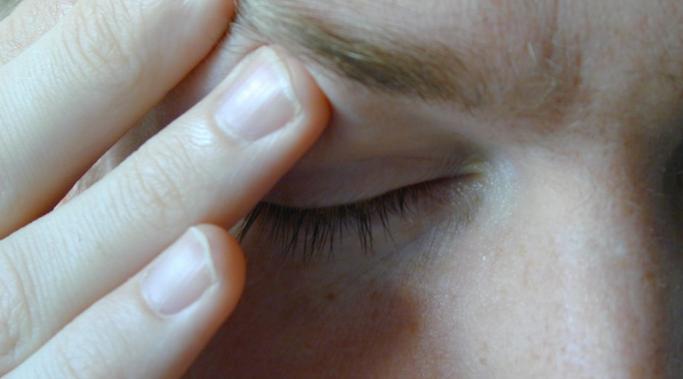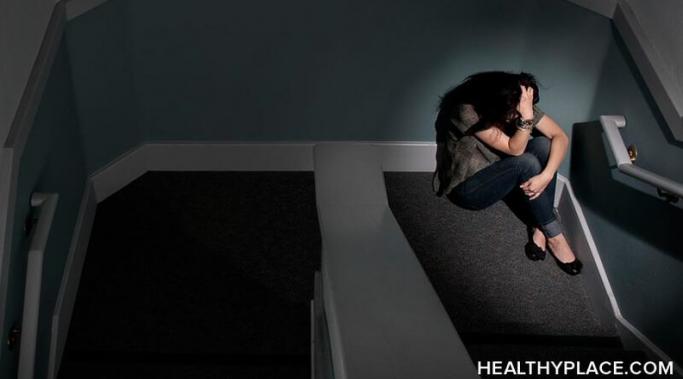Doctors should take every patient seriously, but they don't. How can you get your doctor to take you seriously? Lets start with this recent comment (edited for length):
I have a masters degree in pharmaceutical science and have worked with clinical research for 11 years . . . I feel that maybe I get to close to be on the "same level" as my psychiatrist. . . I am afraid my doctor might think that I have better control of my bipolar "state" than I have. I do not have control . . . I want her to think of me as THE patient. But on the other hand I do want to be involved and discuss treatments etc. . . I think that she does not realize how bad I am right now. No one does. I am that happy, funny outgoing guy Johan. They just do not look behind the mask . . . It is strange that no one takes it seriously when you say you have suicidal thoughts. Mutilation . . . My doctor knows that I am depressed. But why does she not realize how bad it is?
So, how do you get your doctor to take your seriously when you often appear alright to your doctor? Can your intellect actually do you a disservice?
Coping
One of the most terrifying things about mental illness is that you can no longer trust what you feel. Oh sure, you feel it just as sure as day, but can you trust it enough to act on it? Not really. At least, not if you want to keep your job, friends, marriage and so on.
You can no longer simply feel and act. Now you must feel, think and then contemplate acting. It's exhausting and not a particularly reasonable thing to be expected to do.
I hate having bipolar disorder. It's my least favorite thing about me. For all the talents I have developed, possibly in part, due to bipolar disorder, I would give those up in a moment to simply not be sick.
But I did realize something about bipolar disorder - just surviving it is an achievement. And if I can survive bipolar disorder then I can do anything.
If you've been hanging out in the mental health corners of the web for longer than about a day, you've probably seen it - mental illness bashing. Mental illness, mental health, psychopharmacology, doctor, therapy and other-related-topics bashing.
It's extremely common and extremely hurtful and destructive. But it's the wild and woolly web, and that sort of nastiness happens in the jungle. Here are some tips for not letting other people's nastiness get to you.
When I got diagnosed, I was attending a university and on my way to getting a bachelors of computer science. I was a pretty fastidious student in my first year and my grades were excellent. But before I knew what a mental illness was, I became sick and my grades dropped. It was only some time later that it became clear it was because I had bipolar disorder.
And after months of treatment, nothing was working and one day, my doctor said to me,
"You should drop out of school; you're never going to be able to finish your degree."
Really? Pshaw.
I write an obscene amount. Here, plus my blog plus I write for other blogs and do technical articles. Oh, and I'm working on a book.
This is very difficult though as I've found that a highly symptomatic bipolar brain turns into something more akin to a bipolar rock.
Despite what many people think, mental illness isn't just about "being sad" or hallucinating or feeling suicidal - mental illness is about physical pain too. One of the ways people get diagnosed with illnesses like depression is due to physical complaints (what doctors call somatic pain).
When you have a mental illness, not only your brain hurts, but your body does too.
I have spent many months of my life with an inability to feel pleasure - this is known as anhedonia. This means that no matter what happened, no matter how great it was, I couldn't feel happy about it. I couldn't feel happy at all. However, there is something I have learned about anhedonia, even without an ability to be happy, I can be thankful.
I talk about bi-polar disorder. As in, two poles - mania/hypomania and depression. The name is extremely descriptive.
But as it turns out, there is something in the middle (besides normalcy, whatever that is); it's called a mixed mood episode. Mixed moods possess distinct characteristics of both depression and mania. Mixed moods severely impair judgement and carry a significant risk of suicide.
We all have gut reactions to information. It's the reaction when our stomach knots or tumbles, our breathing quickens or stops, our eyes light up or look down. It's the reaction we have before realizing we're having a reaction.
And gut reactions around mental illness can be powerful. The problem is, our gut reactions are so often wrong about mental illness and mental illness treatment.


